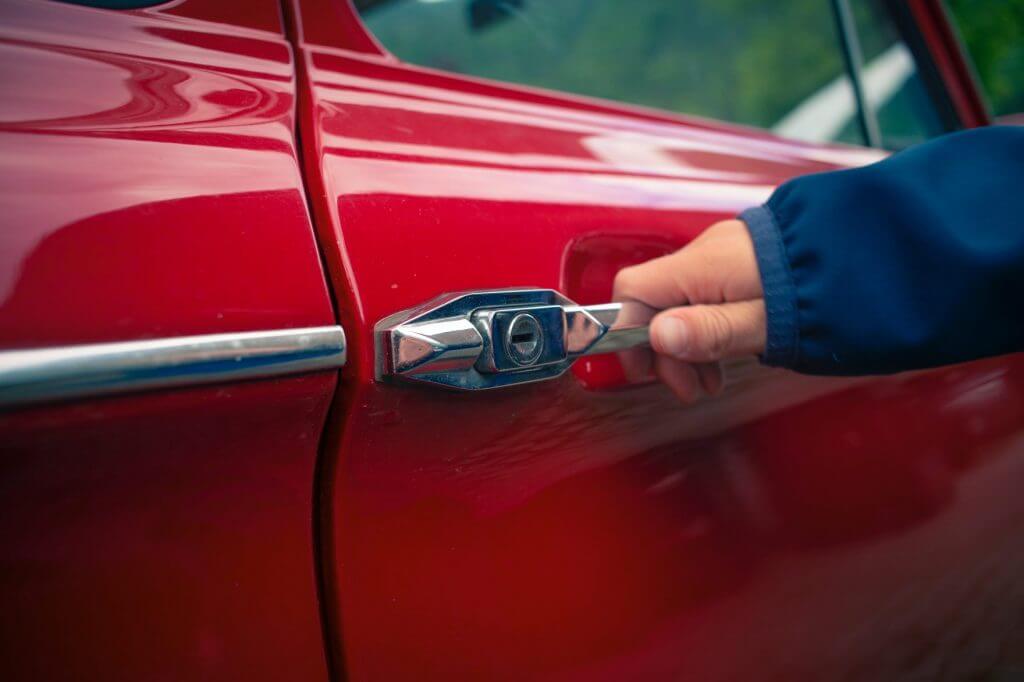The great ideal of chivalry has, in our time, largely been reduced to things like “hold the door for a woman.”
As it’s largely been stripped of its context, some of us are even questioning this last and least remnant. After all, what does it possibly matter who opens the door? Also, shouldn’t a strong, independent lady be able to open her own bloody door or pay for her own meal? Isn’t it infantilizing a woman to cater to her in this sort of way?
I always found the latter objection especially strange. Apparently, to be catered to and deferred to now implies weakness on your part. By that logic, a king would be considered the weakest and least respected man in his own kingdom, as he is the one who is most catered to.
There is a moment in Ben-Hur where the Emperor Tiberius is preparing to give a proclamation. The servant tasked with handing it to him is momentarily distracted and doesn’t realize that Tiberius is sitting there with his hand held out, glaring at him and waiting for him to give him the scroll. It’s within easy reach, but he is the Emperor; he doesn’t move to meet his servants, his servants move to meet him. No one who valued his head would dare suggest this implied weakness on the Emperor’s part; quite the contrary. His power and authority is shown in that others do things for him, not because he can’t, but because he shouldn’t have to.
This is useful to know if you ever meet the Roman Emperor, but what does it have to do with dating?
Men, naturally physically stronger than women, have a duty to put that power at the service of women.
To explain that, we have to address something that many people in our day and age would rather ignore: the fact that men, as a rule, are physically more powerful and more aggressive than women (absolutely nothing good comes from trying to deny this). Not only that, but women tend to be more attracted to physically strong, athletic, confident men. Or to put it another way, women are often drawn to men who are capable of being dangerous to them.
The special courtesies offered to women in Christian culture—the bows of knights, the tipping of hats, the opening of doors, and so on—are in part a check on the potential problems of this situation (there are other reasons which we don’t have time to get into here).
Men naturally have more physical power than women; therefore, we must drill ourselves in the habit of using that power for women rather than for ourselves (in the same way, women have tremendous attractive power that they must learn to use safely and justly, which is what we call ‘modesty.’ But that’s a topic for another time).
Take the example of opening doors, for instance. Broken down to its essential elements, to open the door and then let another person go in first is to make an effort and give another the benefit. That is, to render service. That both effort and benefit are minimal is precisely why the act is important: it is service in its most basic form.
Perhaps it is especially because he doesn't need to that a man should perform these acts of service.
In other words, the question is not, “Why does a woman need the door open for her?” but, “Why is the man not willing to make even this tiny effort on her behalf?”
The answer may be “Because it doesn’t matter,” but note what happens there: we have moved from, “I am at your service” to, “I am at your service when I judge it necessary.” This is a similar problem to a soldier thinking that he doesn’t need to keep his uniform clean: if he can’t even muster the discipline to do such a basic task, who will trust him to watch their back on a battlefield?
The man who opens the door and lets you enter a restaurant first is building the same habit that might one day cause him to stand back and let you enter a lifeboat first. The rich men who went to their deaths on the Titanic while chambermaids and seamstresses were lowered to safety could easily have thrown the entire crew into the sea and saved themselves. They didn’t, in part, because they had been trained all their lives to afford certain basic courtesies to women. And though you may never find yourself in such dire circumstances, every woman ought to hope that the man she marries has a similar attitude towards her wellbeing.
As Our Lord told us, “He who is faithful in small things will be faithful in great ones.”
It is in the simple, the seemingly pointless, where the act itself is all there is that a man’s true habits are formed, just as a musician’s skill is formed in working his scales.
Moreover, these courtesies don’t just form such habits, but they convey them to the lady. Action, you see, has its own language, one in which lying is much more difficult than in speech. The little courtesies a man is expected to show to a lady are ways of telling her, "You can trust me. I know I have certain advantages over you, but I am not going to press them. I am going to place my own welfare second to yours.”
This doesn’t mean that such courtesies are an infallible guide, but it does mean they matter. So, gentlemen, hold the door open for a lady, and ladies, do not take offense. These things, like so many, mean more than they seem.


